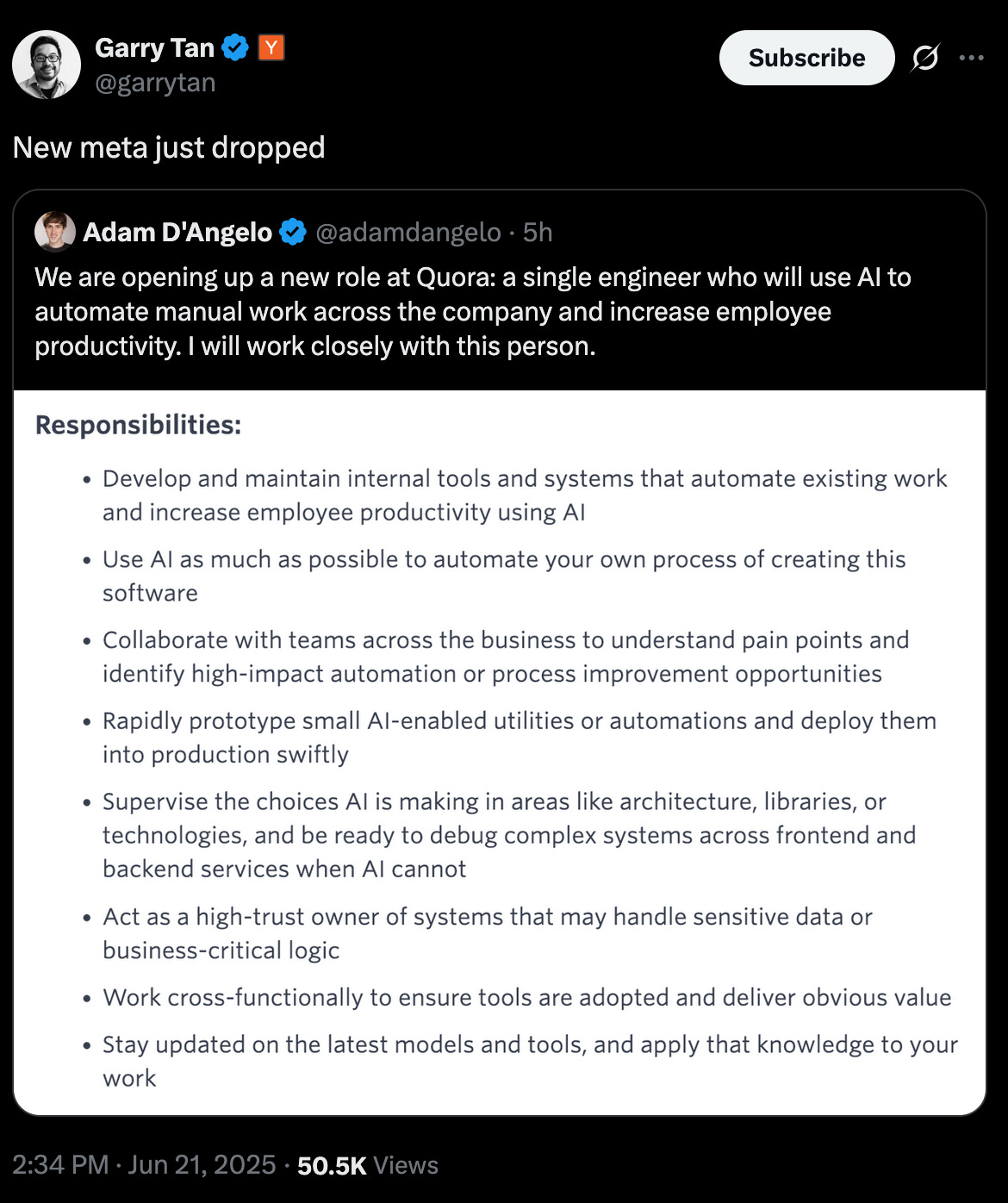Three weeks ago, something hit me.
Business and tech leaders were stressed about AI but in an uncharacteristic way.
Usual frame: AI is going to put us all out of business.
New insight: Humans are struggling to apply AI in their business.
Ironic, no?
Here, we are witnessing an explosion of superintelligence in the form of large language model (LLM) models. Yet, the bottleneck to adoption still remains... the less intelligent humans.
In the past two weeks, I've had over two dozen conversations with business owners and leaders. The common theme? Most people are nowhere near applying AI in a meaningful way within their company. And if they are, they are terrified that their peers or competitors are one or more levels ahead of them.
Digging Deeper
A problem with trend spotting is you can extrapolate from a small data set to come to an incorrect solution. After all, I am in a specific industry in a specific role in the middle of the country working with early stage startups. My next question was, does this trend hold globally?
I dug deeper with OpenAI's Deep Research. The key highlight was that while AI is being applied and making an impact, as many as 40% of teams and companies are lagging behind where they want to be.
Companies are trying various approaches to address this issue. Public company CEOs are making public proclamations that all employees must use AI. Team leaders are blocking off their team's calendars to do 1-2 day hackathons. And people are hiring AI coaches and trainers to help skill themselves up.
Last week, I predicted that the only way this issue could be resolved in the long-term would be through the emergence of a new role. Call it an "AI Lead" or a "Chief AI Officer," but companies would have to hire specialists that would be able to
Keep up with trends.
Find high ROI places to apply AI to solve business needs
Train team members and implement lasting culture changes
And, bingo! Today, we are witnessing this new role emerge.
History Rhymes
Anyone familiar with the cloud software space in the mid-2010s may be aware of the role of a "DevOps engineer." Initially, it was just a philosophy of how businesses shipped software better and faster. Everyone was supposed to embody it, but that's a huge burden to place on every employee on every team.
Eventually, dedicated job functions and roles emerged. These DevOps engineers were sometimes glorified labels, but the point was businesses knew they needed someone with the skills, experience, and intention to ensure the company could benefit from this philosophy.
The same is happening with AI.
Attempts to mandate "well, everyone needs to learn how to use AI" won't be enough. Individuals still have to spend the majority of their day performing the job functions at hand and can't dedicate an additional 5-10 hours per week to continually upskill.
No, we will need specialists (at least for now) to help companies achieve sufficient AI fluency so that this can self-sustain. Until it becomes as common as typing skills.
Until then, expect to see a new wave of AI training products and services to help everyone get AI into their businesses.
Time to catch this trend!


